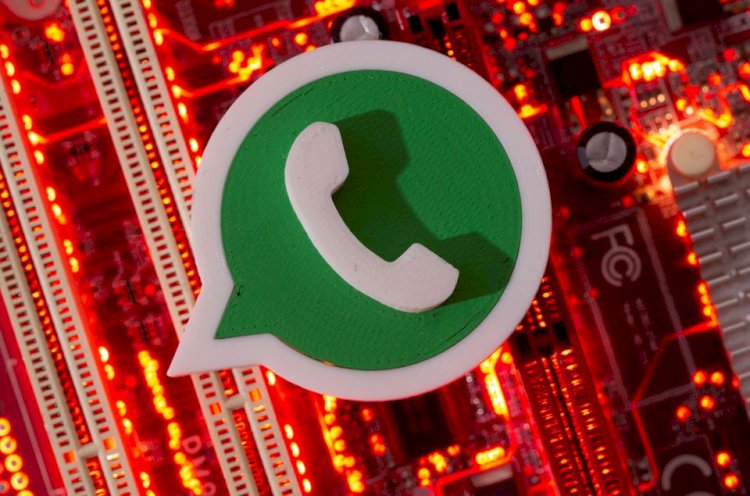How Does WhatsApp Make Money?

There is a very good chance that you use WhatsApp if you own a smartphone. The straightforward and portable online messaging tool has integrated itself into our lives and has grown to be essential. There are millions of conversations taking place every day in family groups, friend groups, office groups, play groups, and many other groups like these. Have you ever thought about the revenue model for this popular online messaging service? WhatsApp does not contain any ads; in that case, how does it make money?
WhatsApp Foundations
In 2009, Brian Acton and Jan Koum launched WhatsApp. It is a free secure messenger service that enables users to communicate domestically and internationally over a secured network. The parent company is Meta Platforms, Inc. (META), and its current location is Menlo Park, California. In 2021, Facebook's corporate name was changed to Meta Platforms.
Following Instagram and Facebook Messenger as the company's two biggest subsidiaries, WhatsApp was acquired by Facebook in 2014. WhatsApp doesn't conduct its own business.
WhatsApp is a powerful messaging app. Users can share images, documents, and voice and video calls while also sharing their location and sending text and voice messages. In essence, WhatsApp offers everything a user could possibly need to communicate with someone else.
Users enjoy the platform's free, ad-free, end-to-end encryption, which the company claims prevents it from reading or capturing messages.
The Business Model of WhatsApp
WhatsApp's main offering is an effective personal messaging service. Its method of making money differs slightly from that of many competitors in the market. When WhatsApp first launched, it was a "freemium" service that allowed users to send messages for free for the first year before having to pay $0.99 per year to continue using it. They have abandoned this business strategy and refrained from using in-app advertising. Instead, they profit from WhatsApp Pay and WhatsApp for Business.
There are numerous rivals in the market, and each of them uses a different business model to generate profits. The top rivals include LINE, Kakao, Kik, and Skype.
- In-game purchases and additional services like sticker sales are how LINE generates revenue.
- Kakao makes money off of advertising.
- Kik rewards users for viewing advertisements.
- Skype is a paid calling service available globally.
WhatsApp's Revenue Models
WhatsApp does not rely on advertisements for funding. Because the founders detested advertisements, they built this ad-free platform with a singular focus on a wonderful user interface. Instead of building an instant messaging platform for large corporations to place advertisements, they wanted to build it for the users. They had to pay their bills at the same time, though. Therefore, they made the decision to create a paid version of the application for which they charged users a $1 annual fee.
1:- WhatsApp for Business
Although consumers can use the service for free, companies can sign up for WhatsApp for Business to use the platform for sales and support. Major companies like Netflix, Uber, and Wish use the WhatsApp Business API. Initially, it urged companies to use the platform and respond promptly. Businesses would be charged by WhatsApp for delayed responses. As a result, while the company could reply without charge within 24 hours, replies received after that would incur a fee.
According to a messaging tier, fees are assessed by the new business API for WhatsApp for Business. Charges include:
- 0.0085 per message for the first 250,000 messages
- $0.0083 per message for the following 750,000 messages
- $0.0080 per message for the following 2 million messages
- The following 3 million messages will cost $0.0073 each.
- The following 4 million messages will cost $0.0065 each.
- $10.05 per message or more than 10 million messages
In essence, a company's rate decreases the more messages it sends.
2. WhatsApp Pay
Like PayPal, WhatsApp Pay allows for online payments. Users are able to send money for free to friends, family, and businesses. 3.99% of each transaction is charged to the party receiving the funds.
This app connects to a linked bank account where the money is deducted from or deposited, just like other money transfer services. Only certain devices in India and Brazil can currently access this service.
3. Strategies for generating future revenues
Apparently, WhatsApp copied Snapchat's features in order to steal its user base as well as its revenue-generating techniques. The Economic Times reports that the company intends to allow companies to use the status feature, which allows users to share text, images, videos, and animated GIFs for a 24-hour period, to advertise and market their enterprises.
To sum up
Although you can't invest directly in WhatsApp, you can understand how the market leader in messaging services generates revenue for its parent company, Facebook. As it fights to keep its market share in secure messenger services, WhatsApp is growing as a revenue source.

 Lalita Singh
Lalita Singh 





















